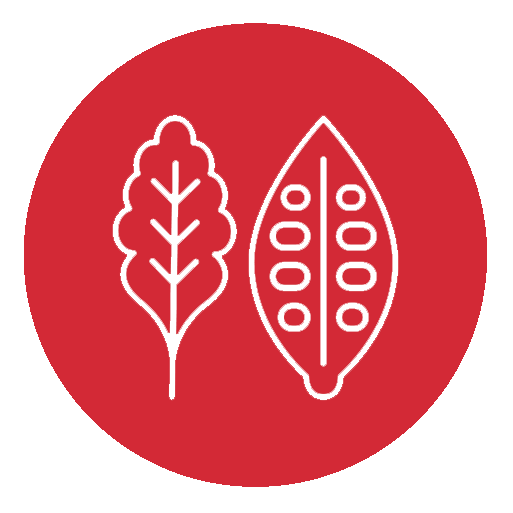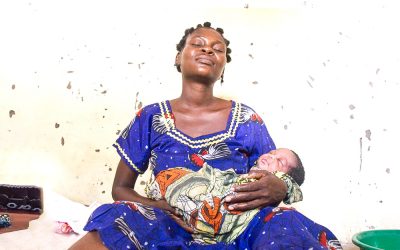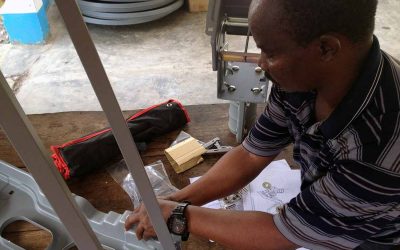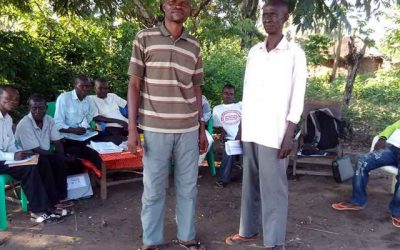
ABOUT ASSP
The Access to Primary Health Care program, known locally as ASSP, uses a health systems strengthening approach. ASSP collaborates with the Ministry of Health, or MOH, at the national and provincial levels, giving focused support to health zones, health facilities, and community levels. In addition, IMA and its partners ensure that more than 75% of the project resources are concentrated within the health zones. In other words, the majority of funds pay for programs that provide for service delivery, empowerment, accountability and capacity building of local community service organizations, partners and MOH representatives.
PEP kits distributed within 72 hours of rape
Births attended at a health facility
Pregnant women treated with IPTp
WASH infrastructure projects completed
ASSP Programs

Nutrition

Family Planning

Infrastructure & Construction

WASH
Medicine

Safe Deliveries
Immunizations
Improving Access
Hospital Management

DHIS2

Malaria
Clean Cookstoves
Community Health Endowments

Leadership & Governance
Gender & SGBV

Behavior Change Communications
improving health for 9.7 million people in the DRC.
Since 2014, ASSP has supported an estimated 9.7 million people across Kasai, Kasai Central, Nord Ubangi, Maniema and Tshopo provinces, providing life-saving services to more than 10 percent of the total population of the DRC.
Health Areas
Health Zones
Provinces
ASSP Leadership
Our Partners
ASSP is implemented by a consortium of organizations that work together at all levels of the health system to implement nutrition, obstetric and neonatal care, family planning, immunization as well as water, hygiene and sanitation interventions. Read MoreRecent News
IMA Appears Before British House Of Commons International Development Committee
MA World Health appeared before the British House of Commons International Development Committee to present its UK aid-funded work in the Democratic Republic of Congo.. DFID applauds the work of ASSP In the DRC, UK aid funds the Access to Primary Health Care Project,...
ASSP Project Ensures Health Zones Stay Connected In DR Congo
Who knew that working with information management systems would require the skills of an anthropologist? In a country where internet connection is sporadic, IMA World Health Senior IT Engineer Siméon Avuta travels to the farthest reaches of this vast country to ensure...
ASSP Staff Enlisted To Aid In Response To Ebola Outbreak In DR Congo
An electronic database for Ebola Response Written by Linda JamesIMA World Health Four members of staff from the UK’s Department for International Development bilateral health program in the Democratic Republic of Congo, Accès Aux Soins de Santé Primaires, have been...
A Long, Winding Road: ASSP Overcomes Challenges To Deliver Medicine In DR Congo
The arrival of the ASSP shipment of medication and equipment such as hospital beds, mattresses and diagnostic machines is worthy of a village celebration! Written by Linda James IMA World Health Originally posted at www.imaworldhealth.org Whether in the heat of the...
IMA Addresses Malnutrition In DR Congo
Perseverance is an amazing quality! This describes so many in Congo who are involved in the Access to Primary Health Care project. Samuel, Tshituka and Alphonsine are three such individuals tackling malnutrition in their communities in the Kasai region with the help...
ASSP Empowers Health Zones In DR Congo
Perched on the southern banks of the Ubangi and Uele rivers at the border of the Central African Republic lies the town of Yakoma. At the main general hospital, Hôpital Général de Référence de Yakoma, the Access to Primary Health Care project, known locally as ASSP,...
26 million patients have visited our health centers and community care sites for curative consultations.
QUICK CONTACTS
Recent Posts
Implant Method in DRC: A Family Planning Success Story
Spreading the Word about the Implant Method in DRC.News is spreading about the implant method in DRC. The families featured in this article are partly to thank. The stories below are just a snapshot of the impact the implant has made on the lives of families using the...
Implants Create Opportunity in DRC: A Family Planning Success Story
Julienne is one of the many women we celebrate during International Women’s Month. She is a shining example of how implants create opportunity in DRC. She is a 43-year-old mother of four and a force to be reckoned with! Julienne and her husband had three children when...
Safe Delivery App Helps Health Workers Respond To Emergencies In DR Congo
Dr. Nancy Bolan knows how important it is for health workers to have up-to-date information when responding to a maternal or newborn emergency at a clinic in the Democratic Republic of Congo. While serving as a deputy country director for IMA World Health in DRC from...











